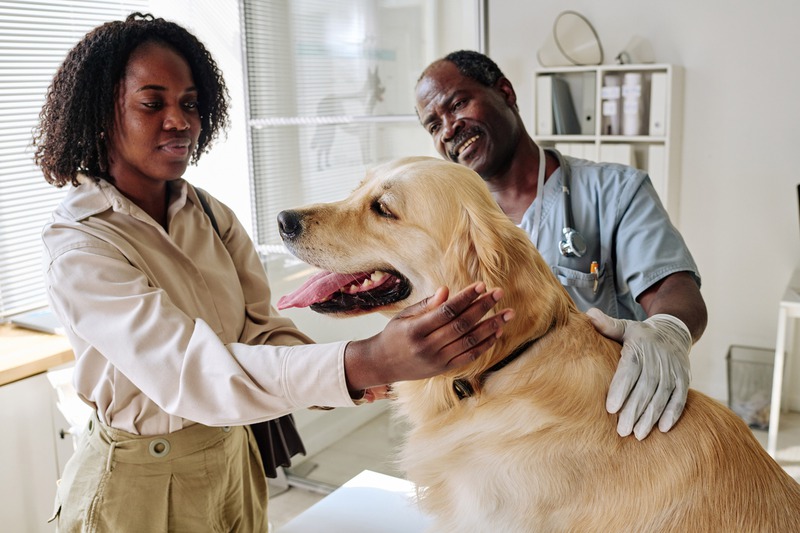If you’re a pet owner, you know your furry friend is part of the family, and their health is of utmost importance to you. One of the critical aspects of maintaining your pet’s health is understanding the world of vaccines – specifically, what core and non-core vaccines are. Just like humans, pets require vaccinations to protect them from various diseases, some of which can be life-threatening. However, not all vaccines are created equal, and knowing which ones are essential and which are optional can be a bit of a maze to navigate. So, let’s break it down in an easy-to-digest yet detailed manner.
What Are The Core Vaccines for Pets
Core vaccines are the essential shots that every pet should receive. These vaccinations protect against widespread diseases, have high rates of infection, and often lead to severe illness or even death. In addition, these diseases can sometimes be transmitted to humans, making vaccination even more crucial.
Core Vaccines for Dogs
For dogs, the core vaccines include:
-
Canine parvovirus
-
Canine distemper
-
Hepatitis (adenovirus)
-
Rabies
These diseases are particularly nasty and can spread quickly, so protecting your pooch with these vaccines is the best way to ensure they live a long, healthy life.
Core Vaccines for Cats
For our feline friends, the core vaccines are slightly different:
-
Feline panleukopenia (feline distemper)
-
Feline calicivirus
-
Feline herpesvirus (rhinotracheitis)
-
Rabies
These vaccines combat widespread diseases among cats, and, like with dogs, the rabies vaccine is imperative due to its potential to affect humans as well.
Non-Core Vaccines for Pets
As for non-core vaccines, these are based on a pet’s exposure risk. Factors such as your geographic location, lifestyle, and the prevalence of certain diseases in the area help determine which non-core vaccines might be necessary for your pet.
Optional Vaccines for Dogs
Some of the non-core vaccines for dogs include:
-
Bordetella bronchiseptica (kennel cough)
-
Leptospirosis
-
Canine influenza
-
Lyme disease
Your vet may recommend these vaccinations if your dog frequents boarding facilities, dog parks, or areas where ticks are common.
Optional Vaccines for Cats
Non-core vaccines for cats can include:
-
Feline leukemia (FeLV) for kittens and outdoor cats
-
Bordetella
-
Chlamydophila felis
-
Feline immunodeficiency virus (FIV) for cats at risk
Outdoor cats or those living in multi-cat households may be more susceptible to certain conditions, making these non-core vaccines worth considering.
How to Decide Between Core and Non-Core Vaccines
When deciding between core and non-core vaccines, having a conversation with your veterinarian is vital. They will evaluate your pet’s health, lifestyle, and risk factors to tailor a vaccination schedule that suits their unique needs.
Moreover, scheduling regular wellness exams at Hyde Park Veterinary Clinic can ensure you keep track of your pet’s health throughout their lifetime. These exams are a key time for discussing any concerns, including the need for non-core vaccinations that might benefit your furry companion.
The Schedule and Frequency of Vaccinating Your Pet
Pets need vaccines starting at 6-8 weeks old, with more doses until 16-20 weeks. They’ll then get regular boosters, yearly or every three years, to stay immune. For example, rabies vaccine schedules vary by law. A vet can best advise the right schedule for your pet’s continued protection and health. Keeping up with vaccinations for your pet is not only a part of responsible pet ownership but also provides peace of mind, knowing that your beloved companion is protected from certain diseases.
The Role of Vaccinations in Overall Pet Health
Vaccinations play a crucial role in your pet’s overall health, but they aren’t the only preventive measures to consider. Other aspects of pet healthcare include regular parasite control, nutrition, and dental services for pets. Just like vaccinations, these are integral parts of a comprehensive health plan for any pet. Remember to discuss all these aspects during your pet’s wellness exams.
Why Dental Services Matter
Good oral health can prevent various diseases and help your pet maintain a better quality of life. Untreated dental issues can lead to more significant health problems, so including dental services for pets in your pet’s healthcare regimen is crucial. These services often include professional cleanings, extractions, or treatments for gum disease.
Side Effects and Considerations
While vaccines are safe for most pets, some animals may experience side effects. These can range from mild reactions like soreness or fever to more severe allergic reactions. It’s important to monitor your pet after vaccinations and report any adverse reactions to your vet. In rare cases, certain pets might not be suitable for some types of vaccines due to health conditions or allergies. Your vet will guide you on the best course of action in these situations.
Final Thoughts
Our dive into the world of pet vaccinations shows that there’s a core group of vaccines every pet should get and a second tier that depends on individual risk factors. It’s essential to keep communication lines open with your veterinarian and to keep those wellness exams and booster shots on schedule. Vaccinating your pet is an act of love, protecting them from harm and potentially extending their happy, tail-wagging or purr-filled years with you. Whether it’s protecting against rabies or ensuring good dental health, every step we take contributes to the well-being of our cherished animal companions.


